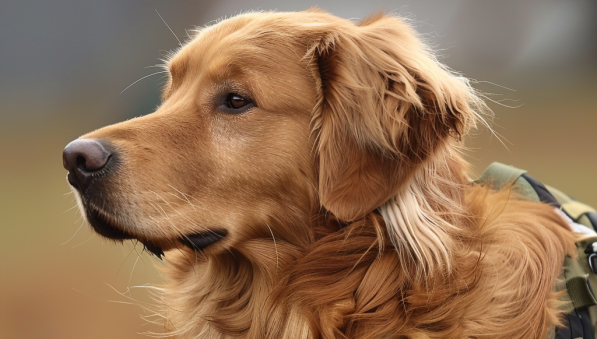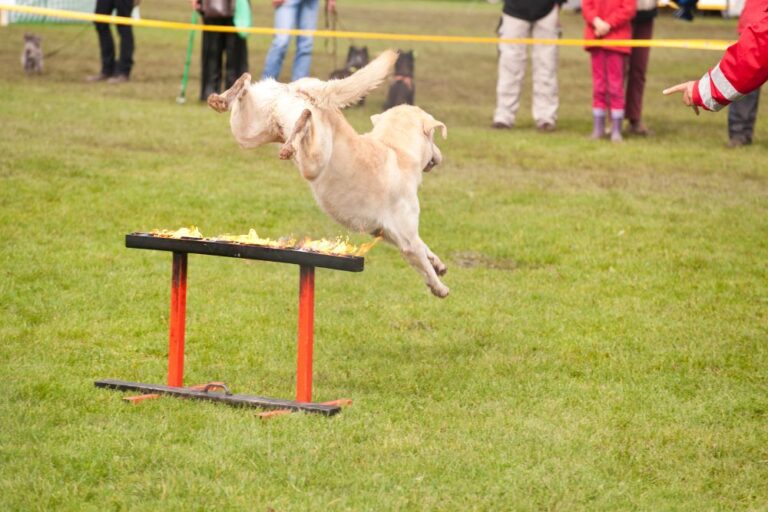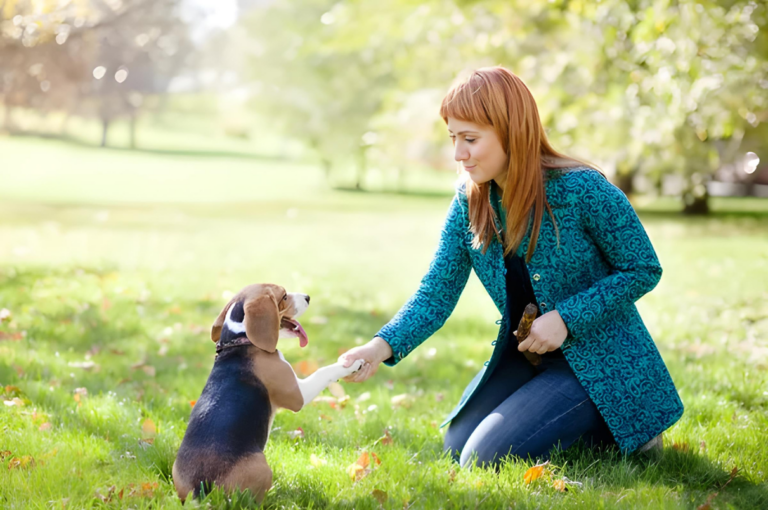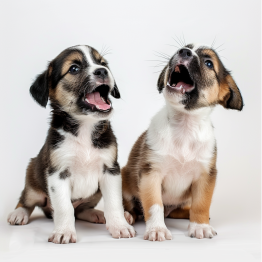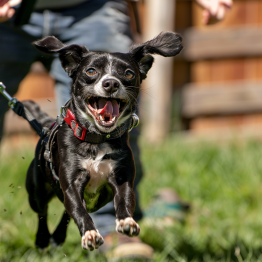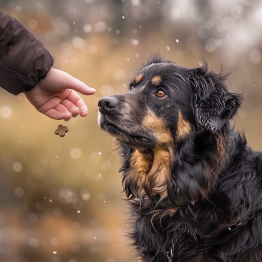Alpha Dog Behavior

Understanding and Managing Alpha Dog Behavior
Do I have an alpha dog? Is that alpha dog behavior? Let’s find out here exactly what kind of dog you have and if our Alpha Dog Behavior Tups can Help 🙂
Alpha dog behavior problems in your pack?
Do I have an alpha dog? Is that alpha dog behavior? Seems a bit out of the ordinary, maybe my dog is just a little aggressive or it’s a breed thing?
These are all questions many of us may have asked ourselves at one point or another when dealing with that certain dog. That “one of” dog pretty much everybody comes across once in their lifetime. Maybe twice!
While being “Alpha” is not necessarily a bad thing, at certain times an alpha dog can feel above its human pack and here’s where alpha dog behavior can begin to cause problems.
We’ll first need to figure out if you’re actually dealing with alpha dog behavior, beta dog behavior (even worse), or something totally different. Once we nail it down we can then use training techniques to re arrange your dog’s thought process. Together, we’ll knock our problem dog down the social hierarchy totem pole and get them in line with family members, other dogs, and pets whom share your home.
Pack Mentality
In they mind of a dog you and I, our pets and everything else is a pack regardless if we live in a home, apartment or a condo. Experts and enthusiasts alike believe all dogs live by pack mentality. Canines exhibiting alpha dog behavior are just doing what’s instinctively and genetically programmed and it’s not until alpha dog behavior causes problems that we’re scratching our heads wondering “what happened?”.
There’s a pack social ladder in a dog’s world and while single dog homes tend to have fewer problems with hierarchy, AKA pecking order, in multiple pet homes all bets are off. Those with two dogs may notice how one dog seems to be dominant and the other passive or submissive. This in fact is instinctive pack hierarchy the two have worked out with the dominant dog being in the Alpha position.
Of course if you as owner are viewed as alpha leader, the same two dogs may live as equal to each other and look to you as alpha leader. This is not uncommon for many two dog households.
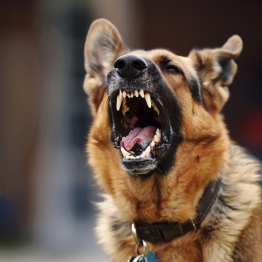
Fighting & Conflicts
Fighting and conflicts can result in multi dog homes when one dog assumes the alpha position and the others don’t fall into the subordinate role. Again, it’s really no fault of the alpha dog here, the problem is the beta dog, or challenger. Conflicts can occur when there is confusion about pack position amongst the dogs that is due to any variety of reasons. Simply put, things are not settling into normal social order.
Here are a few situations that can cause social unbalance in your pack and an alpha dog to act out;
- A new dog or pet is introduced to your home.
- A puppy reaches adolescence typically between 6 to 12 months of age. During this period testosterone levels in males rise and a young dog may begin to challenge the alpha as a feeling out process.
- A dog reaches social maturity and between age one to two years begins to establish its social position in the pack.
- The reighning alpha ages, becomes week or dies leaving the position contested by a new comer.
- You try to treat or praise all dogs equally without paying special attention to the dominant dog.
- You feel sorry for the your shy dog and offer special praises, comfort, bed or toy while ignoring the dominant dog.
- On a whim you interfere with day to day possessions controlled by the dominant dog. Items such as toys, food and bedding.
- You change the routine in behaviors which the dominant dog is accustom which in turn changes patterns of already established hierarchy.
- You pay attention to another dog or pet rather than the alpha.
TIP: Every pack has a leader or alpha and this is normal. When alpha dog behavior becomes “over the top”, there’s fighting amongst your dogs, or the wishes and commands of your family are being ignored, it’s important to re establish pack position!
However, you cannot totally stop pack mentality among dogs as there will always be a pecking order when dogs live together. The important thing is that the humans in your pack should be looked to as alpha, top of the pecking order and ruling over all dogs in your pack.
When watching a group of dogs it’s not always clear-cut who is top dog as alpha dog behavior is often exhibited as a calm confidence. And, in a typical pack, dogs don’t seem to care at which position they hold as long as they know their position. An alpha dog is not always the bully of the group and may sit back confidently watching the the antics of other subordinate pack members as they in fight and test each other to establish their pack position.
Spotting submissive dogs among your pack is pretty easy but you can also peg the alpha of the pack if they’re acting out excessively with alpha dog behavior and over enforcing their alpha position. Watch for the following to spot the alpha of your group;
-
- The dog that becomes jealous or pushy when attention is given to another dog.
-
- A dog that steals, hoards, hides and guards all the dog toys or chew bones left down for your dogs.
-
- A dog that sleeps in the best spot, for instance, has the old sofa and wont share with other dogs.
-
- The dog that is first to the door when letting dogs out, always out first.. and in first.
-
- A dog that mounts other dogs both male and female. Female dogs showing alpha dominance may mount males.
-
- The dog that no other dogs will not stare at, or stare briefly at then look away.
-
- Subordinate and submissive dogs may pay attention to the alpha, sometimes licking their paws or legs.
-
- Alpha dog will always end up with the toy during dog play such as tug of war, or the ball when playing fetch even if another dog retrieves it.
Pack Structure Behavior Types in Dogs
Pack structure is not complicated yet is dynamic and can change day to day with exception of the alpha dog.
Alpha Dog (Top dog and I know it..): At the top of the heap is the alpha male, or, alpha female that takes on a leadership role that is clearly understood by the pack. An alpha dog is not necessarily a dog that makes the most fuss, is pushy or aggressive since it’s not trying to be top dog.. It already is! The alpha will not be challenged and other dogs will look to the alpha for guidance and protection. Alpha dogs will rarely fight and if aggression is required of the alpha, it is typically swift and to the point! Often a dog showing alpha dog behavior simply exudes clear confidence and leadership. This dog may respond well to human interaction and it’s not until things get skewed and the alpha believes it is above humans do we typically have a problem with an alpha dog.
Beta Dog (The trouble maker..): Here’s the dog that’s often the problem for most of us. A beta dog is challenging and often, beta behavior is often misinterpreted by dog owners as alpha dog behavior. Alpha, as described above and by our alpha dog training article, explains that by definition alpha behavior is not typically a problem. It’s the beta dog that gives us fits and really needs reconditioning! A beta dog is commonly very dominant and can be hard headed with training as it’s often unwilling to accept a position lower than a human, other dog, or anything for that matter. This makes training a beta minded dog extremely difficult. A beta dog is constantly testing the waters, challenging other dogs, pets and people for pack position. Beta dogs are typically unreceptive to any form of control. Call it a problem with authority I guess! Being too much for most families to handle, a trip to the dog pound or shelter is often in a beta dog’s future.
Dog fights are common with beta dogs as play often escalates to rough play since they often misinterpret other dog’s play as a challenge for pack position. Possessive guarding and protective aggression of objects and things is often common here and a beta dog may even become aggressive for attention from its owner. A beta dog wants to be alpha and leader but does not know how to achieve it! This often results in repetitive conflicts when living with other dogs.
Omega Dog (Who me?): Poor omegas, bottom of the heap yet happy as a clam! Most omega dogs are sweet tempered and will just go with the flow. The only issue with some omegas is they can be a bit timid and lack confidence. With a “don’t create any waves” mentality, most omegas will go through life simply taking the easiest route while trying to avoid conflict. Omega dogs may have issues in social settings if not acclimated to them. Bring an omega minded dog to your local dog park and there’s always a chance it will be challenged or attacked if a beta is among the group. More aggressive minded dogs can sniff out an omega within seconds so keep an eye on the crowd when socializing your easy going girl. [the_ad id=”1850″]
Stepping forward..
Our intent when including dog behavior types with this article is to help you put a finger on what you’re dealing with, be it Alpha dog behavior, Beta or Omega. If we were successful you now have an idea of pack position personality for all your dogs. Should your alpha exaggerate its position by acting out, getting difficult with other dogs or becoming hard to handle, it’s important that you and all human members of your pack become alpha. Follow the tips on alpha dog training published in this article.Beta minded dogs are much more difficult and you’ve got a bigger issue than simply assuming an alpha role. Soon we will be publishing a page on “nothing in life is free” (NILF) dog training to help you with beta dogs. You may subscribe to our RSS feed available in the right column of our homepage to be notified when the NILF training article is published. Omega dog training is your call. While it never hurts to socialize there’s no need to do any training if your dog is just living life and going with the flow.
Alpha Dog Behavior Summary
An alpha dog is not necessarily a problem dog unless it’s over exaggerating its alpha position by acting out or disregarding its human pack members. More commonly in a pack it’s the beta dogs that are constantly challenging pack hierarchy, are often aggressive and bossy to subordinate dogs.
In either case it’s important to establish yourself as alpha to calm the waters. Once you achieve alpha and are viewed as alpha, your dogs will be perfectly fine falling into place as subordinate pack members. Remember that alpha is a confident leader and looked up to for the necessities of life.
Food, water, shelter, protection, praise and even punishment are all expected of an alpha. Alpha dog behavior should not be confused with beta behavior. Become leader and your dogs will instinctively thrive at whatever lower social pack position they fit in:)

